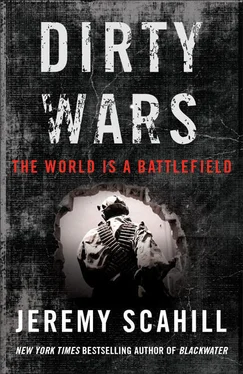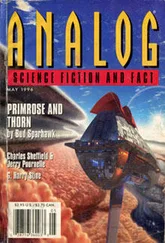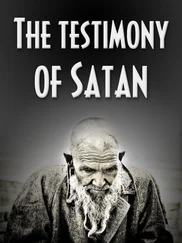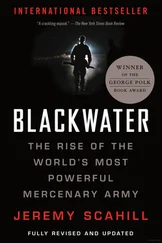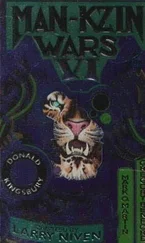In fact, some of JSOC’s most sensitive missions were conducted at home. In 1993, Delta Force members participated in the disastrous raid against the Branch Davidian cult’s compound in Waco, Texas. Some seventy-five people died in the raid, including more than twenty children and two pregnant women. JSOC also conducted security operations within America’s borders when the 1994 World Cup and 1996 Summer Olympics were hosted by the United States.
By the end of the 1990s, the Department of Defense had officially acknowledged that teams such as JSOC existed, though its name was not made public. “We have designated Special Mission Units that are specifically manned, equipped and trained to deal with a wide variety of transnational threats,” said Walter Slocombe, the undersecretary of defense for policy. An estimated 80 percent of JSOC’s missions prior to 2000 remain classified.
“I would say they’re the ace in the hole. If you were a card player, that’s your ace that you’ve got tucked away.” That’s how General Hugh Shelton described JSOC to me. Shelton served as chairman of the Joint Chiefs of Staff under President Clinton and had spent most of his military career in Special Operations. Before Clinton named him chairman, Shelton had commanded the US Special Operations Command (SOCOM), which was technically the parent organization for JSOC’s operations. “They are a surgical type of unit. They are not to be used to assault a fortress or anything—that’s what the army and the marine corps does. But if you need someone that can sky dive from thirty miles away, and go down the chimney of the castle, and blow it up from the inside—those are the guys you want to call on.” They’re “the quiet professionals. They do it, and do it well, but they don’t brag about it,” he added. “You would not want to commit them to anything that required a mass force—and I guarded against that, when I was the chairman.” On 9/11, Shelton was chairman. And Rumsfeld loathed him and his reservations.
Although JSOC’s secret history was discussed, in hushed tones, in the halls of the Pentagon, many of its most decorated veterans believed it had been underutilized or, worse, misused. After an auspicious start and a far-reaching mandate, JSOC was viewed as a bastard child within the Pentagon and White House. The Iran-Contra scandal had placed a pox on the house of covert action. Despite some successes, such as the rescue of Kurt Muse, an American citizen, from a Panamanian prison during Operation Just Cause in 1989, Special Operations Forces (SOFs) were used with trepidation for the decade preceding 9/11.
During the 1991 Gulf War, United States Central Command (CENTCOM) Commander General Norman Schwarzkopf was reluctant to include JSOC in the war plan, though he ultimately lost that battle. JSOC deployed and—among other missions—hunted down SCUD missile systems to sabotage them. This distrust began to thaw slightly during the Clinton administration. According to SOCOM’s official history, during this period, the operational tempo of Special Ops Forces increased more than 50 percent: “In 1996 alone, SOF were deployed in a total of 142 countries and engaged in 120 counterdrug missions, 12 demining training missions, and 204 Joint Combined Exchange Training exercises.” But, rather than targeted kinetic ops, JSOC had mostly been used in large-scale operations, which increasingly became peacekeeping missions involving international coalitions, such as the wars in Bosnia-Herzegovina, Liberia, Sierra Leone, Haiti and Somalia. The kinetic, direct-action missions it was formed to conduct seldom seemed to go live. General Wayne Downing, who headed SOCOM from 1993 to 1996 and was a former JSOC commander, said that following the end of the Cold War, US Special Operations Forces’ “unconventional warfare” role “had received reduced emphasis,” adding that its “capabilities in this area had atrophied.” JSOC, he said, “maintained superb counterterrorism and counterproliferation capabilities, but operated from a reactive rather than a proactive posture.”
As the al Qaeda threat began to emerge in the 1990s, JSOC would propose missions aimed at targeting the network’s leadership. Its commanders believed that this was its central role, and early drafts of planned operations against bin Laden and al Qaeda in the late 1990s reportedly included JSOC. But JSOC’s commanders claimed that prior to 9/11 their forces “were never used once to hunt down terrorists who had taken American lives.” According to Downing, during his tenure at SOCOM he participated in the preparation of approximately twenty operations targeting terrorist groups accused of killing American citizens, but the command “couldn’t pull the trigger.” Downing asserted that although JSOC “had superb, direct assault, ‘finish’ capabilities,” it lacked “the ‘find’ and ‘fix’ and intelligence fusion capabilities essential to” fight a global war on terrorism.
“For many years, they were kind of a joke. They were the ‘Big, Bad, Weightlifting Guys,’ you know, down at Fort Bragg, inside their compound there,” recalled Lang. “But they went on a lot of reconnaissance, and did things like that, but they never got to fight anybody, until the Clinton thing in Somalia [the infamous 1993 Black Hawk Down incident]. You gotta admit, they were brave as hell—there’s no doubt about that—but in fact their real days of glory, as kind of worldwide scourers of the enemies of justice and truth, really only started after 9/11. They didn’t really do a lot of fighting before that, really.”
Rumsfeld came into office with an agenda to change that equation. He not only wanted the Pentagon to take over covert operations from the CIA but aimed to consolidate control over these operations himself, radically streamlining the established military chain of command. JSOC was created in secrecy to perform operations that were, by their very nature, meant to be kept hidden from virtually all other entities of military and government. After 9/11, Rumsfeld moved swiftly to create a structure to circumvent the Joint Chiefs and to begin directly coordinating with combatant commanders to conduct kinetic operations in their areas of responsibility. Under Title 10 of the US code, the chair of the Joint Chiefs of Staff was the senior military adviser to the president and was to serve as a conduit to the president. “[Rumsfeld] didn’t like that at all,” recalls Shelton. Rumsfeld “would try to diminish my authority or eliminate members of my staff,” Shelton alleged. Rumsfeld, Shelton said, “wanted to be the policy and the operations guy.” Shelton told me Rumsfeld sidelined “all that military expertise” and “he immediately wanted to figure out how he could start dealing directly with the combatant commanders and not dealing, as every other SECDEF [secretary of defense] had done, by presidential directive through the chairman of the Joint Chiefs.” In his memoir, Shelton described Rumsfeld’s model of the secretary of defense as being “based on deception, deceit, working political agendas, and trying to get the Joint Chiefs to support an action that might not be the right thing to do for the country, but would work well for the President from a political standpoint.” He added, “It was the worst style of leadership I witnessed in 38 years of service or have witnessed at the highest levels of the corporate world since then.”
Shelton said that during his time as chairman, under both Clinton and Bush, he personally intervened to stop operations he believed would have resulted in innocents being killed if they had gone ahead based on initial intel. But Rumsfeld wanted to streamline the process for green-lighting targeted killing operations and did not want to be bogged down by the military brass. “You’ve got to be careful when you start killing people, and make sure the ones you kill are the right people. And that requires using all the assets we got, to make sure we don’t make a mistake. And it can be done fast, but it needs to be done as a cross-check,” said Shelton. “Even though you don’t want to miss an opportunity to grab a terrorist, you don’t want to end up having an international incident that turns out to make us look like the terrorist.” Far from Shelton’s view of how these “surgical” forces should be deployed, Rumsfeld believed that JSOC had been underutilized, and he intended to transform it from the tip of the spear of a new global killing campaign to the spear itself. Rumsfeld—and many in the Special Ops community—believed that President Clinton and the military brass of the 1990s had lawyered forces like JSOC into a state of near irrelevance in the fight against terrorism. During the Clinton administration, “the possibility of hunting down the terrorists did receive ample attention at the top echelons of government,” concluded a report commissioned by Rumsfeld three months after 9/11. “But somewhere between inception and execution, the SOF options were always scuttled as too problematic.”
Читать дальше
